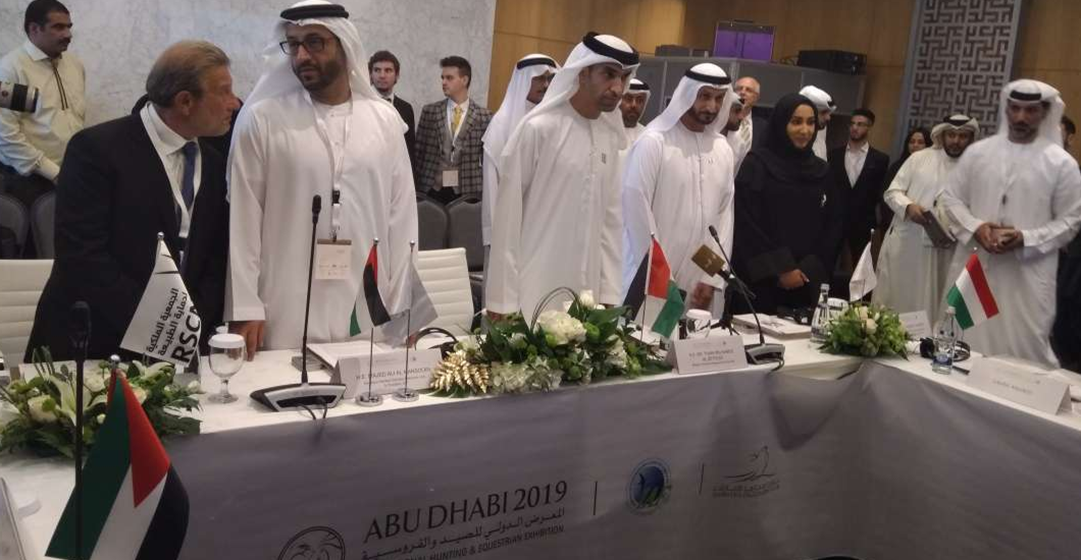IAF put together this important workshop, in collaboration with the Emirates Falconers’ Club, and the International Fund for Houbara Conservation. Also taking part were speakers from the IUCN; the CMS and Bern Convention Intergovernmental Task Force on Illegal Killing, Taking & Trade of Migratory Birds in the Mediterranean; the Ornithological Society of the Middle East, Caucasus & Central Asia (OSME); Birdlife International (Middle East region), the Royal Society for Nature Conservation, Jordan; FACE and scientists/conservation experts from the UK, Russia, Mongolia and Hungary.
The day-long workshop was opened by H.E. Dr. Thani Ahmed Alzeyoudi, Minister of Climate Change and Environment for the UAE and by H.E. Majed Al Mansouri, President of the IAF, who began his speech with:
“The illegal trade in birds of prey is one of the greatest threat to the survival of some of these iconic bird species. Conservationists and devotees of falconry agree on the necessity of stamping out this trade. This workshop will bring together top experts in the field to discuss the progress being made in clamping down on the illegal trade and the challenges that still lie ahead.”
The first session of the workshop was chaired by Adrian Lombard, Co-Chair of the Thematic Group on the Sustainable Use and Management of Eco-Systems of the International Union for the Conservation of Nature, IUCN.
Presentations in this session attempted to show the extent of the problem, although the speakers were all unable to offer accurate figures, due to the clandestine nature of the activity. It was also clearly seen that, in the case of saker falcons, electrocution is at least as big a threat to the population as is the illegal trade, while pay-off from falconer sponsored conservation activities more than compensates for the legal trade. See video.
The afternoon session, chaired by Dr. David Scallan, Director-General of FACE, the Federation of European Hunters, began with a report from Janusz Sielicki, a member of the Steering Committee of EURAPMON, Research and Monitoring for and with Raptors in Europe, on the effects of both illegal and legal trade in birds of prey on their populations.
The importance of government, conservationists and falconers all joining forces to stop illegal trapping, was stressed by several speakers. Veterinary research from the UK, indicated that if welfare issues associated with illegal trade can be addressed, the numbers needed to supply demand would be greatly reduced.
It was generally agreed that the worst illegal activities are in areas where even governments have little control, for example in war-zones and remote mountain areas, as well as where there are corrupted local authorities. Making more and more laws has little effect if they cannot be enforced. A better approach is to work with governments and international organizations to promote community-based legal and sustainable trade, based on pre-determined, scientifically evaluated, harvestable numbers. In other words, traditional trapping in small numbers, which has been sustainable since the dawn of falconry. If we can work towards this we will have the way to conserve falcons and support local communities economically.
Please follow this link to read the statement formulated at the end of the workshop sessions

